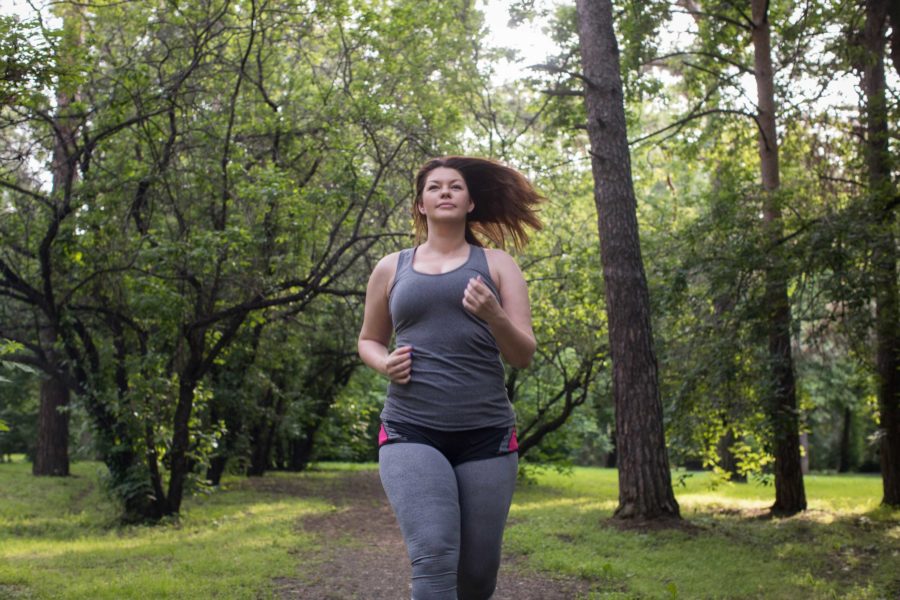This year as I struggle to shed my “winter eight” weight gain, again, I’m reminded of the advice my gynecologist once gave me: “Most of my patients find it’s just not worth eating like a bird to stay the same weight they were in their 20s and 30s.”
Then she encouraged me to maintain a healthy diet and sustainable exercise habits that would keep all my vital numbers in check, not just my weight.
Glenn Gaesser, Ph.D., an exercise physiologist and author of “Big Fat Lies: The Truth about Your Weight and Your Health” agrees.“The number on the scale may be a poor predictor of health as it fails to consider cardiovascular fitness, physical activity and diet,” he says.
Gaesser’s position is that being fit and fat can be healthier than being skinny and out of shape.
He’s among the experts who believe that the focus on fat is actually making us more obese.
The number on the scale may be a poor predictor of health as it fails to consider cardiovascular fitness, physical activity and diet. — Glenn Gaesser, Ph.D.
How? Research has shown a potential relationship among weight stigma, emotional eating and poor self-esteem.
With 68 percent of U.S. women proudly wearing a size 14 or larger, we agree that fat shaming is wrong. But, doesn’t having a body mass index (BMI) in the overweight or obese category correlate with a slew of life-shortening health concerns like cardiovascular disease, diabetes, and even an increased risk for certain cancers?
Apparently the research on that isn’t cut and dry. According to Linda Bacon, Ph.D., author of “Health at Every Size,” BMI “only weakly predicts longevity,” except in extreme cases. She says that most studies following large groups of participants over many years “find that people who are overweight or moderately obese live at least as long as normal weight people, and often longer.”
Bacon emphasizes working toward health — physically and emotionally — rather than making weight loss your goal.
What is unequivocally bad for our health and longevity is inactivity.
You may have heard that sitting is the new smoking. Here’s the science: Multiple research studies found that people who sat more than eight hours a day, with no added physical activity, showed similarly increased rates of death from cardiovascular disease and cancer as smokers. But, those who also got 60 to 75 minutes a day of physical activity eliminated the negative health impact of sitting.
Multiple research studies found that people who sat more than eight hours a day, with no added physical activity, showed similarly increased rates of death from cardiovascular disease and cancer as smokers.
Yo-yo dieting is also very bad for your heart. Weight cycling of as little as 10 pounds is associated with increased markers of inflammation, high blood pressure, low HDL (the “good” cholesterol), and premature death from heart disease.
Dr. Gaesser adds that most weight loss achieved via fad diets or with weight loss pills can threaten your health and be difficult to maintain. Many of “The Biggest Loser” contestants gain back their weight within a decade.
As Nike’s tagline says, when it comes to exercise we should all just do it. To underscore that women of all sizes can do it, just listen to Danielle Thornton, co-founder of WHOA (Women High On Adventure), gush about a group of plus-sized women who climbed Mount Kilimanjaro: “I’m obsessed with our Curvy Kili Crew climbers,” she says. “There was no body shaming. They had the most upbeat view of what they could do.”
Last but not least, ongoing sleep deficiency is linked to an increased risk of heart disease, kidney disease, high blood pressure, diabetes and stroke. Oh, and not getting enough ZZZs also can contribute to weight gain.
Summing it up: Diet quality, exercise and sleep habits have more impact on health than weight.
Got it? I do. Hopping on my bike to counteract the hours I’ve been sitting here, writing this.



 3 min read
3 min read


